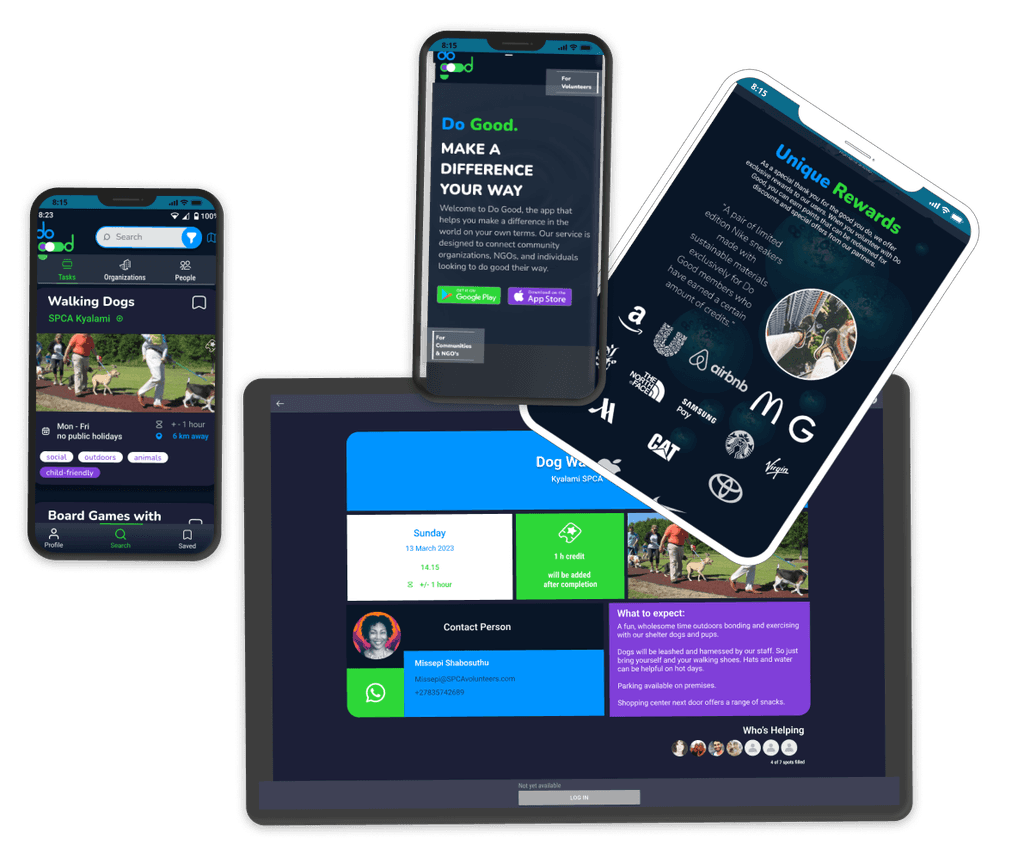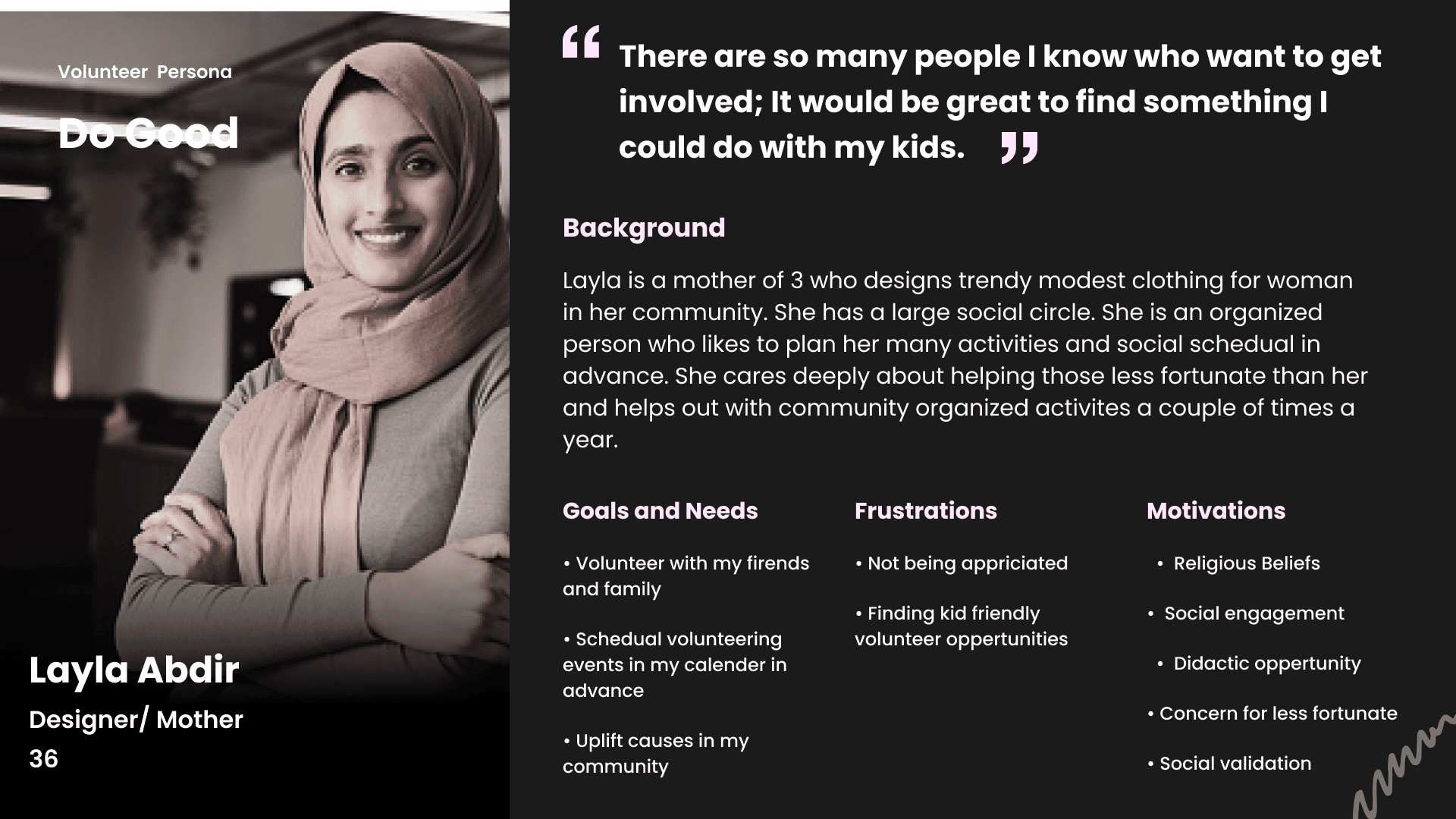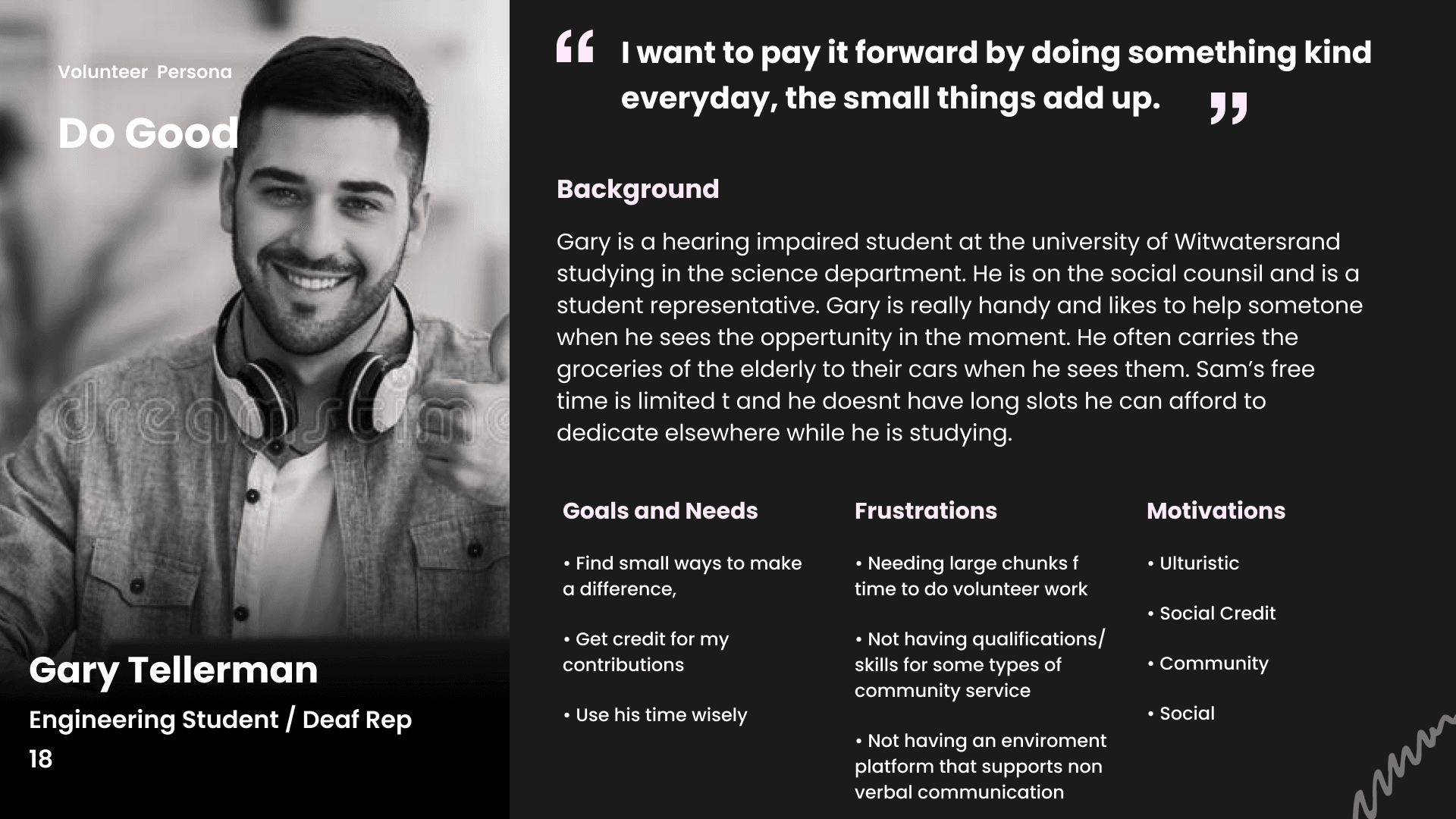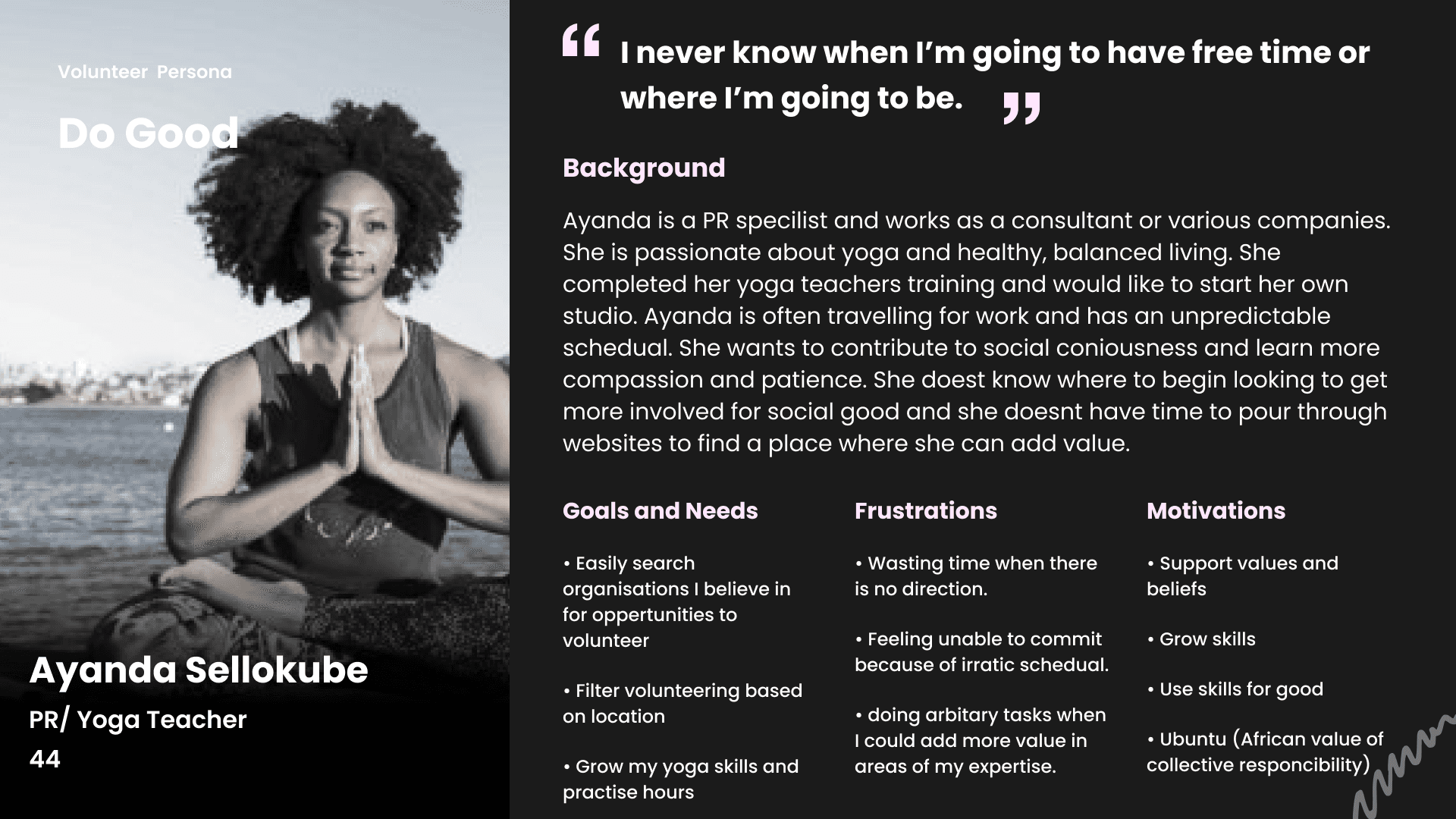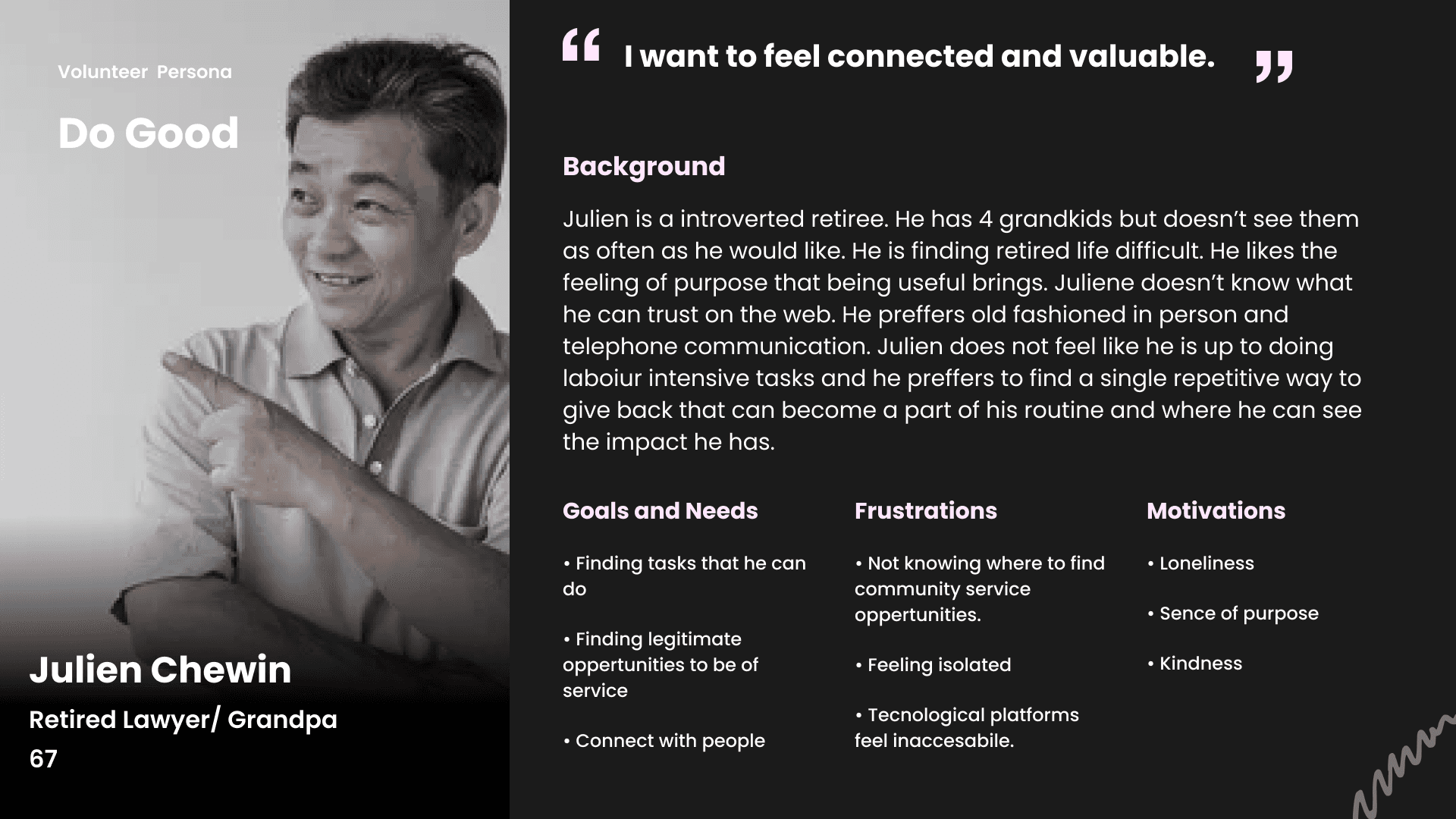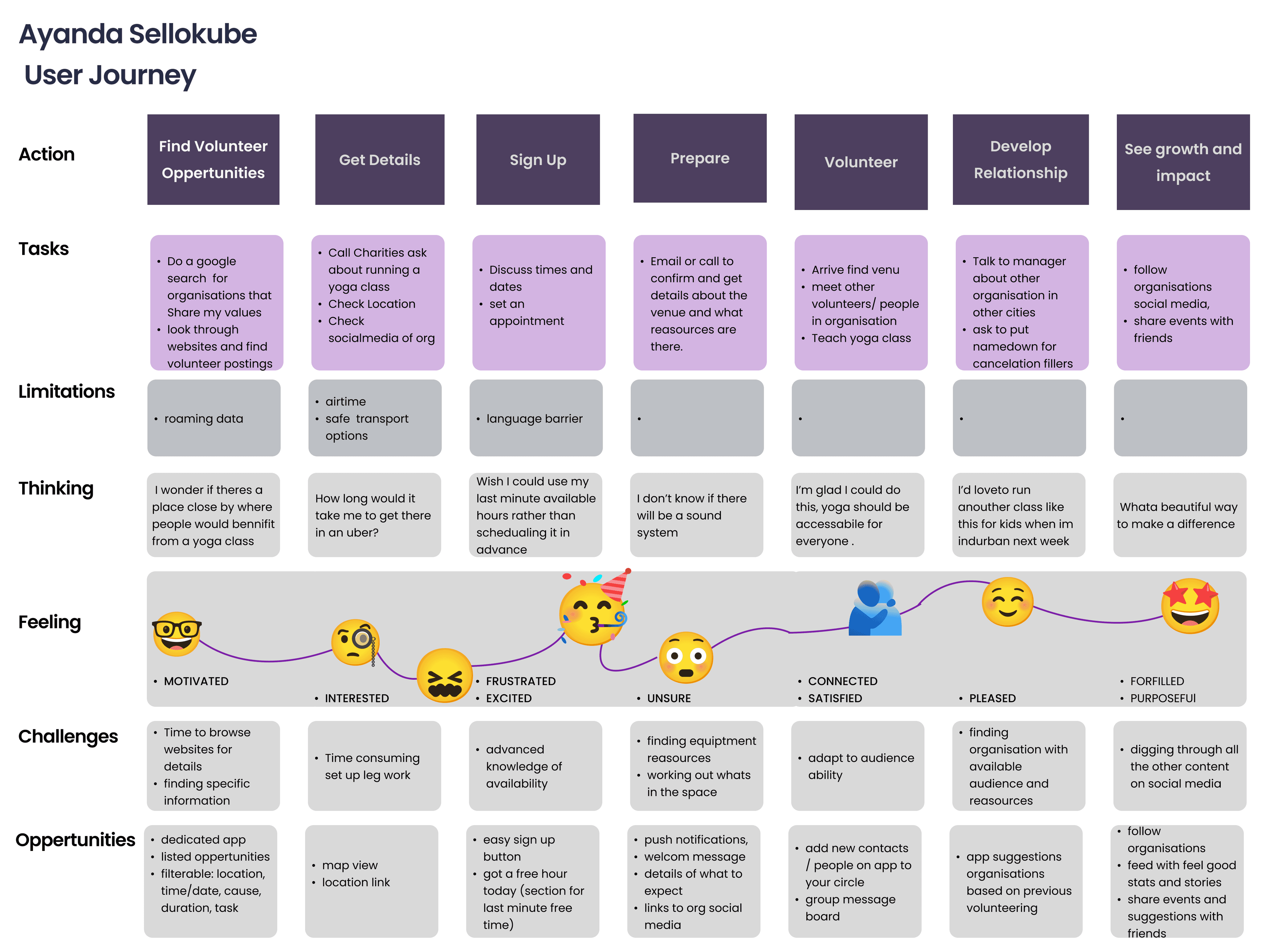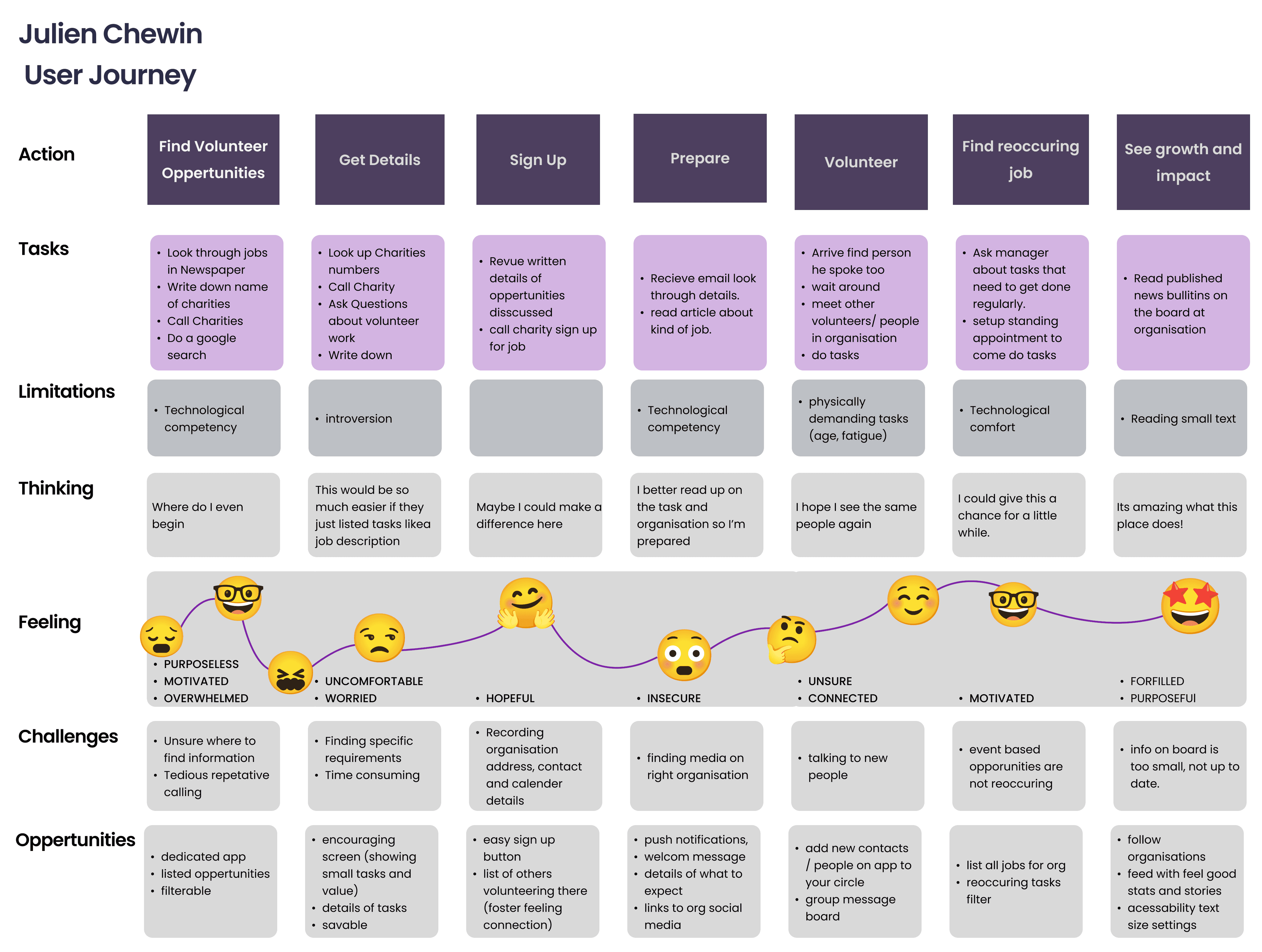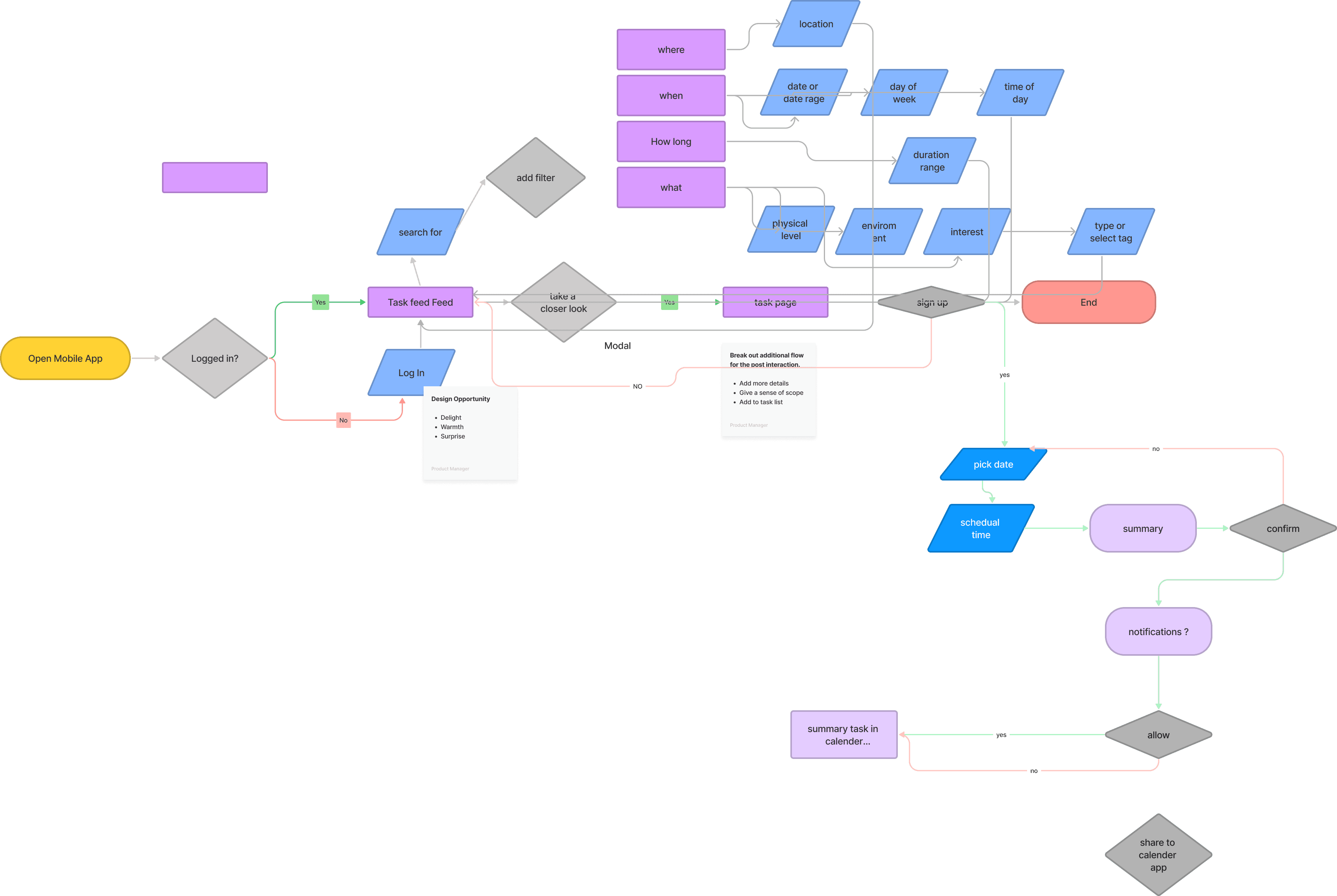Flexible volunteering platform
Do Good make a difference your way, anytime, anywhere!
Do Good is a concept app designed to enhance, incentivize, and facilitate the volunteering experience, making it more flexible and accessible. It helps NGOs and community organizations by expanding their volunteer resources and provides volunteers with opportunities broken down into individual, categorized tasks, ensuring flexibility.
Goals
Do Good aims to make volunteering more accessible and efficient by creating a platform that matches volunteers with tasks that fit their skills, values, and schedules. The app provides structure for organizations to better manage volunteer resources while offering volunteers a flexible, categorized way to contribute.
Mission
Do Good’s mission is to make it easier for people to engage with their communities through structured, personalized opportunities.
The final design for Do Good provides a personalized, flexible platform to match volunteers with opportunities that align with their schedules and values.
Intelligent Task Matching
The app uses volunteer filters inconjunction with an algorithm to match volunteers with tasks that fit their skills, time availability, and interests, reducing the effort required to find opportunities.
Calendar Integration
Seamless integration with popular calendar platforms such as Google Calendar and Outlook, ensuring synchronized scheduling across devices.
Personalization
Customizable settings allow users to tailor scheduling preferences and priorities to their unique needs.
Based on the remote usability testing, the platform's design showed positive results in meeting key performance metrics:
Increased Efficiency
Test participants found the app intuitive, resulting in an 8 overall rating. 62.5% of participants' vocalised appreciation for the task breakdowns which decreased the time required to solicit important information achieving this task 4 x faster. Projecting an impact high task completion metrics.
Positive User Feedback
87.5% of participants appreciated the customisation offered by the filters and calendar integration within the booking flow. Achieving the goal of making it easier for users to find suitable opportunities without spending too much time searching. Projecting an impact of increased usage rates and positive word of mouth.
NGO Feedback
73.6% of the Surveyed NGO's appreciated the streamlined volunteer management features, which simplified the organization and tracking of volunteer efforts and said that they would utilize this platform. Projecting an impact of risk mitigation of utalising reasorces building product without understanding what portion of its prospective audience it would serve.
This category details the step-by-step approach taken during the project, including research, planning, design, development, testing, and optimization phases.
Research & Planning
Since volunteering and altruism already had a broad base of study within academia, I started by evaluating secondary research. This was contextualized for the South African market, focusing on how volunteering plays a role in local communities.
Research Summary:
Qualitative Interviews: Conducted 6 interviews with 35 questions, resulting in 275 data points. These interviews aimed to understand the role and function of volunteering in South Africa.
Empathy Mapping: Developed 4 empathy maps from the data (does, says, thinks, feels), leading to 4 distinct user personas informed by behaviors, environments, and beliefs.
Problem Statements: Identified 36 key problem statements, prioritizing 6 for targeted design solutions.
User Journey Mapping: Created 2 detailed user journey maps with 7 actions visualized across 6 categories, leading to an additional 182 data points.
Competitive Analysis: Studied 4 competing products across 13 categories, collecting 52 data points, allowing a deep dive into existing solutions and gaps.
In total, 549 data points were analyzed, informing the design direction for Do Good.
Key Problem Analysis:
Problem Analysis:
From the research, several key pain points emerged among individuals who wanted to volunteer:
Inconsistent Volunteering: Individuals from diverse backgrounds often do not volunteer regularly due to perceived barriers.
Complexity in Finding Opportunities: Many see finding reliable opportunities as laborious and time-consuming.
Accessibility Concerns: Volunteering is seen as inaccessible due to physical abilities and time constraints.
Commitment Issues: People desire to spend time meaningfully but are discouraged by the perceived effort and long-term commitment required to find suitable opportunities.
The research suggested that simplifying the process, reducing admin burdens, and providing personalized matches would significantly increase volunteer participation.
Design & Prototyping
We designed the Do Good platform’s core flows around user personas and journey maps, emphasizing user-friendly sign-up processes and task filtering to match preferences. The user flow covered the full cycle from signing up for a task to hour tracking and reward collection.
The branding was fun, clean, and punchy, reflecting the platform’s playful tone with a quirky mix of tech-style sliders and the “Do Good” logo. We focused heavily on categorizing tasks and presenting information in summary cards with clear blocks, improving clarity and efficiency.
Key aspects included:
Task Filters: Integrated filters by refrencing design solutions used by Google Maps iwhich ranked highly n the competitive audit for this segment, for location, task type, and preferences.
User-First Design: We ensured flexible options while maintaining low cognitive load, making it easy for users to refine search results without feeling overwhelmed.
Testing & Optimization
The testing phase included remote usability tests via Google Meet, focusing on refining filters, summary cards, and improving system usability. We utilized System Usability Scale (SUS) scores, time-on-task data, and qualitative interviews to identify areas of improvement.
Notable results:
SUS Improvement: Overall score improved by 3 points, with each feature showing a 2-point improvement. This indicated better user satisfaction and ease of use across the board.
Efficiency Gains: Task filtering and identification time reduced by 40%, streamlining the user experience.
Feature Refinements: Based on user feedback, we added geolocation features to track volunteer hours more reliably. WhatsApp was integrated as a contact method, preferred by users, improving communication between volunteers and organizations.
